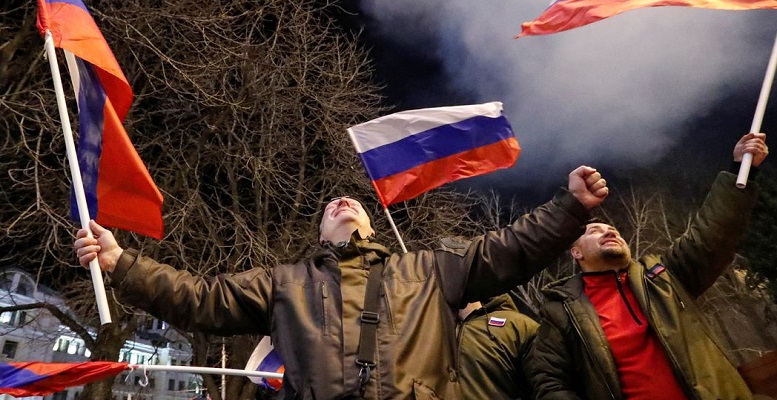“… From the 18th century to the present, apart from occasional skirmishes, what we call the West has unilaterally assaulted Russia on 5 serious occasions. Charles XII of Sweden, an undisputed military genius of poor political skill, attacked the Russia of Peter the Great, crossed from the Baltic into the Ukraine with his troops, and, only there at Poltava, in 1709, the Swedish King and his Ukrainian allies were defeated. In 1812 Napoleon I, at the head of a coalition of satellites and allies, in which only England was absent, attacked Russia and reached Moscow. In 1853, his nephew and heir Napoleon III, in alliance with England, Austria, Piedmont and other European states, attacked Russia in the Crimea. In 1914, Wilhelm II, the German Emperor, and his ally Franz Joseph, the Emperor of Austria, attacked Russia and promoted the creation of a Ukrainian Kingdom as an extension of the Austrian Empire, and in 1941 the National Socialist Reich, i.e. Germany, attacked Russia and caused 17 million deaths. Paranoia is possible, but its basis is obvious (…)
(…) Both parallels, the Austro-Serbian and the Russian-Ukrainian, show the importance for a major power of its security zone, as evidenced, for example, by the international policy of the United States based on the Monroe Doctrine (1823), which excluded third countries on the American continent, formulated in the face of such hypothetical threats as the Russian presence in Alaska, far from US access to the Pacific, and, even more so, that of the European powers of the Holy Alliance in the Spanish Indies.
The Monroe Doctrine predicted almost a century in advance what was to become the Root Doctrine of Manifest Destiny, formulated in 1912, which made the American continent an exclusive zone for US hegemony. In the meantime, the Monroe thesis was projected in concrete applications by the Polk doctrine formulated in 1845, the Grant doctrine in 1870, the Oldney or Cleveland doctrine in 1895, the Lodge doctrine in 1912, and the prohibition of transferring colonial territories to non-American powers formulated in 1940 to prevent Germany’s acquisition of the French and Dutch West Indies.
In all these cases the American doctrine aimed at preventing European action in relation to Texas and the Ibero-American states has been couched in terms that either expressly, tacitly or by the context in which they were uttered, take on a form of language that we now call “coercive”.
The culmination of all this can be seen in the 1962 blockade of Cuba by the United States, when it detected the possible installation of Soviet rockets on the island, which constituted a real act of war, given that peaceful blockades no longer exist. At the time, no one was tearing our hair out because we all understood the security reasons invoked by the hegemon of the Western bloc, the United States, and the most authoritative doctrine considered that indirect aggression justifying defensive action exists when armed forces are stationed in a third country capable of threatening the country under attack. Otherwise, self-defence would be an empty shell (…)”.
This text is part of the conference, in Spanish: “1914 SERBIA; 2022 UKRAINE”.
Delivered by Miguel Herrero de Miñón at the Plenary Session of the Royal Academy of Moral and Political Sciences on 29 March 2022.





